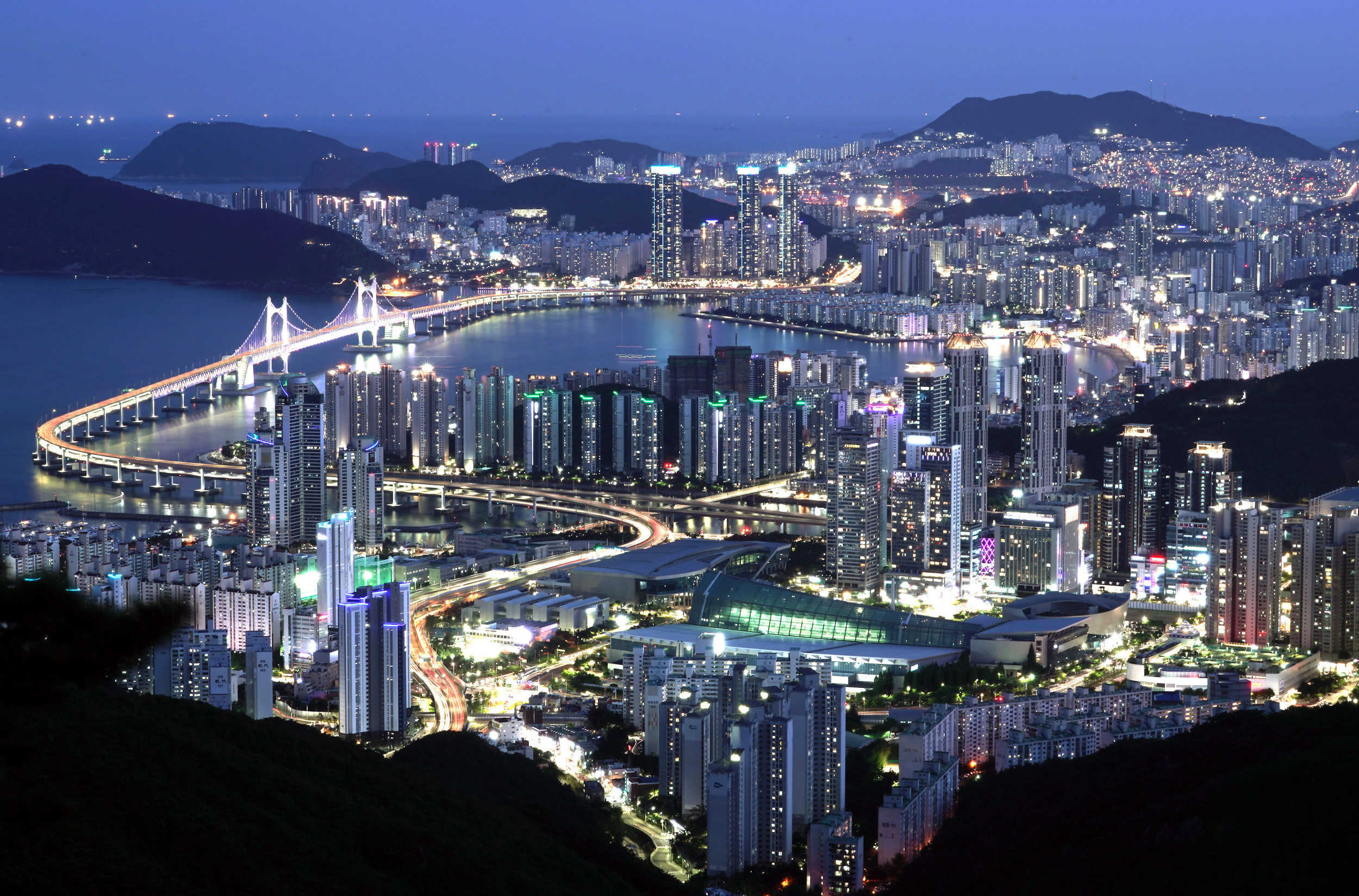Overview of South Korean Urban Landscape
Major Cities in South Korea
South Korea’s urban landscape is defined by several major cities, each with its own unique characteristics and contributions to the nation’s economy and culture.
Seoul: The Capital Megacity
As the capital and largest city of South Korea, Seoul is a sprawling metropolis that serves as the political, economic, and cultural heart of the country. It boasts a rich history dating back over 2,000 years, juxtaposed with cutting-edge technology, modern architecture, and vibrant street life.
Busan: Port City and Economic Hub
Located on the southeastern coast of the Korean Peninsula, Busan is South Korea’s second-largest city and a vital economic center. Renowned for its bustling port, stunning beaches, and vibrant food scene, Busan plays a crucial role in international trade and commerce.
Incheon: Gateway to the World
Situated west of Seoul, Incheon is a major port city and transportation hub known for its strategic location and dynamic economy. It is home to South Korea’s largest international airport and seaport, facilitating connections with destinations around the globe.
Life in South Korean Cities
Modern and Dynamic Urban Environments
Life in guloseu.kr/ is characterized by a blend of tradition and modernity, where ancient palaces and temples coexist with sleek skyscrapers and high-tech amenities. The pace of life is fast-paced, with residents embracing innovation and embracing cultural diversity.
Housing and Infrastructure
South Korean cities boast modern and efficient infrastructure, including high-speed rail networks, extensive subway systems, and world-class amenities. Housing options range from traditional hanok houses to modern apartment complexes, catering to diverse lifestyles and preferences.
Employment and Economy
The economy of South Korean cities is driven by technology, manufacturing, finance, and entertainment industries. Major corporations such as Samsung, Hyundai, and LG are headquartered in urban centers, providing employment opportunities and fueling economic growth.
Social Life and Entertainment
South Korean cities offer a vibrant social scene, with a plethora of restaurants, cafes, bars, and nightclubs catering to diverse tastes and interests. From traditional Korean cuisine to international delicacies, there is no shortage of culinary experiences to explore. Additionally, South Korea’s entertainment industry, including K-pop music and Korean dramas, enjoys global popularity, contributing to the country’s cultural influence.
Challenges Faced by South Korean Cities
Urbanization and Overpopulation
South Korean cities grapple with the challenges of rapid urbanization and overpopulation, leading to issues such as traffic congestion, housing shortages, and environmental degradation. The concentration of population and resources in urban areas has strained infrastructure and public services, prompting efforts to promote balanced regional development.
High Cost of Living
The high cost of living in South Korean cities, particularly in Seoul, poses a significant challenge for residents, especially young people and low-income earners. Skyrocketing housing prices, education expenses, and healthcare costs contribute to economic inequality and social tensions, prompting calls for affordable housing and social welfare reforms.
Environmental Concerns
South Korean cities face environmental challenges, including air and water pollution, deforestation, and climate change. Rapid industrialization and urbanization have taken a toll on the natural environment, leading to health hazards and ecological degradation. Efforts to promote sustainable development, renewable energy, and eco-friendly urban planning are underway to mitigate these issues.
The Future of South Korean Cities
Sustainable Development and Innovation
South Korean cities are embracing sustainable development practices and innovative solutions to address urban challenges. From green building initiatives to renewable energy projects, there is a growing emphasis on environmental conservation and resource efficiency.
Smart Cities and Technology Integration
The concept of smart cities is gaining momentum in South Korea, with initiatives focused on integrating technology to enhance urban efficiency, connectivity, and quality of life. From smart transportation systems to digital governance platforms, South Korean cities are at the forefront of innovation and digital transformation.
Cultural Preservation and Globalization
As South Korean cities continue to modernize and globalize, there is a renewed focus on preserving cultural heritage and promoting cultural diversity. Efforts to safeguard historic sites, traditions, and cultural practices ensure that the unique identity of South Korean cities remains intact amidst the forces of globalization.
In conclusion, South Korean cities represent dynamic hubs of innovation, culture, and diversity, where tradition and modernity intersect to create vibrant urban landscapes. As they navigate the challenges of urbanization, economic development, and environmental sustainability, South Korean cities are poised to shape the future of the nation and the region.

